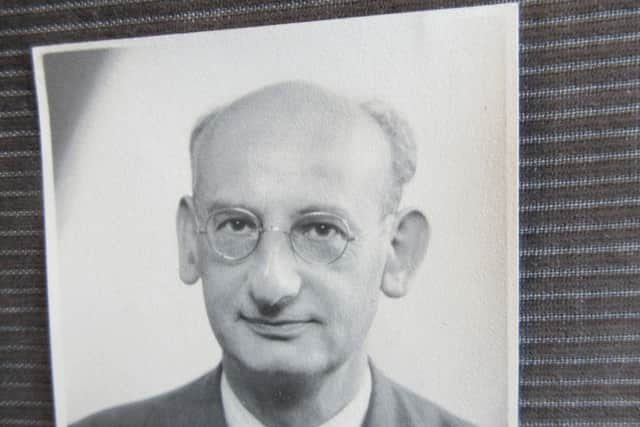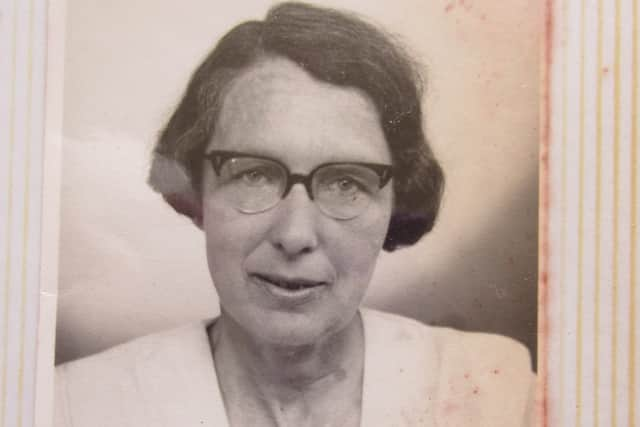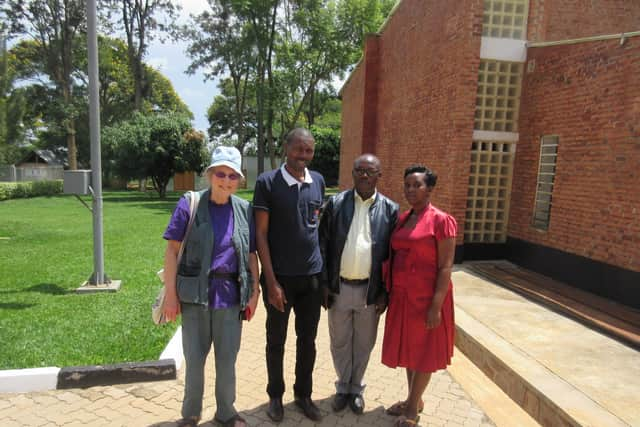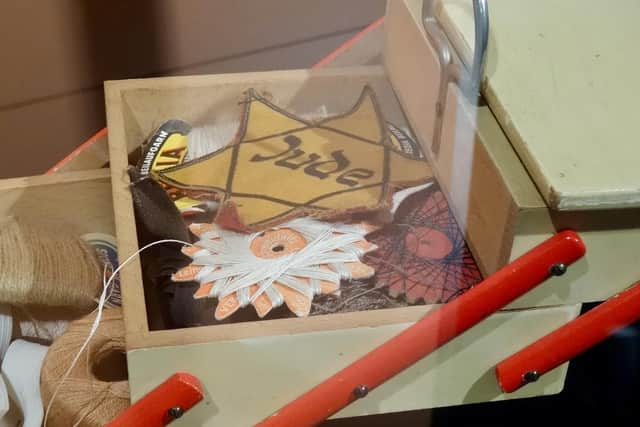Holocaust Memorial Day: Bristol woman’s story on how her parents fled the Holocaust
and live on Freeview channel 276
Nearly 80 years since the Holocaust began, its horrors are still sending shockwaves across the world - including here in Bristol.
Holocaust Memorial Day is marked every year on January 27, and today Bristolians have been telling us about how the Holocaust still impacts them now.
Advertisement
Hide AdAdvertisement
Hide AdThe event sees people come together not only to remember lives affected by the Holocaust, but all lives touched by genocide.
Marian Leibmann’s Parents, Gert and Dodo, were forced to Flee Germany in 1937 and became refugees in Paris.
In 1941, the systematic murder of Jews began, in a plan known by the Nazis as ‘the final solution to the Jewish Problem’.


Over six million Jews were killed in camps across Europe between 1941 and 1945.
Advertisement
Hide AdAdvertisement
Hide AdMarian told BristolWorld how lucky her parents were to have escaped Germany when they did.
After both Gert and Dodo lost their jobs in Berlin, Gert managed to secure a job in England.
But when he told his boss that he was leaving, Gert had his passport confiscated.
For the next three days, they looked for the passport and grabbed it before taking the next train across the border into France.


Advertisement
Hide AdAdvertisement
Hide AdMarian’s parents were able to pack everything up and leave within 36 hours.
The Leibmanns managed to make it eventually to England where they settled in Cambridge.
Gert and Dodo managed to rebuild there lives in the UK moving around to Cambridge, London and Reading.
Gert died in 1956 at the age of 49 and his wife Dodo died in 1989, by which time her daughter Marian had moved and set up her life in Bristol where she now lives.
Advertisement
Hide AdAdvertisement
Hide AdAfter leaving Germany, Gert and Dodo left behind everything they knew, including their families.
Sadly, it would be the last they saw of them, as their families would die in concentration camps at the hands of the Nazis.
Many people are aware of what went on during the Holocaust but many are unaware of the atrocities that have happened since, and some which are ongoing including in Cambodia, Rwanda, Bosnia and Durfur.
The most recent of these, Darfur, is still an ongoing crisis with up to 2.6 million people still displaced and living in refugee camps in Durfur and Chad.


Advertisement
Hide AdAdvertisement
Hide AdMarian Spent some time in Rwanda after the Genocide in 1994, and took part in a trauma course for three weeks as well as helping to run anger management courses.
While she was there, Marian visited memorials for the genocide to learn more about it, and has noticed similarities in the way refugees have been treated then and now.
She hopes people will learn from the mistakes of the past.
“It doesn’t come from nowhere, these people were treated as if they weren’t human and then gradually had more and more restrictions places upon them until they ended up in camps,” she said.
“So the message for today is to examine our prejudices and try and get over them, and treat everyone like a human being.”
Advertisement
Hide AdAdvertisement
Hide AdPolly Allan is part of the Bristol Holocaust Memorial Day Steering Group and talked to us about what we can learn from these events.
She said: “A phrase which is commonly used is ‘to bear witness’ - to actually witness the stories of people who aren’t around any more.
“It’s also about bearing witness to what people can do to each other.”


Polly went on to explain how there is a common misconception about those who participate in genocide.
Advertisement
Hide AdAdvertisement
Hide Ad“Often people think they’re monsters or pathologically unwell, but quite often its just ordinary people carrying out these acts,” she said.
“It could be your neighbour, it could be your friend.”
Polly said believed people should be vigilant about what happens when we turn against each other and hatred for different groups, especually minorities.
Bristol Holocaust Memorial Day Steering Group (BHMDSG) are holding a virtual event to remember the Holocaust and other genocides which will be available to watch on YouTube live or after the event.
They are also keen to recruit new members to tell stories that we perhaps don’t hear in the city.
Comment Guidelines
National World encourages reader discussion on our stories. User feedback, insights and back-and-forth exchanges add a rich layer of context to reporting. Please review our Community Guidelines before commenting.
